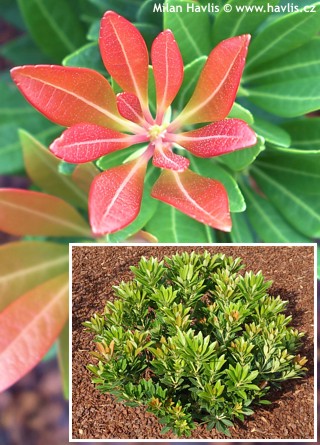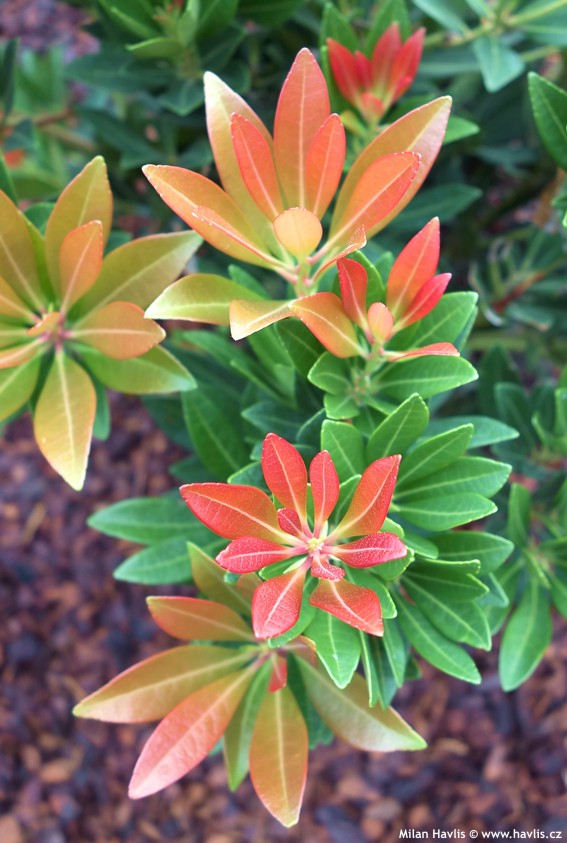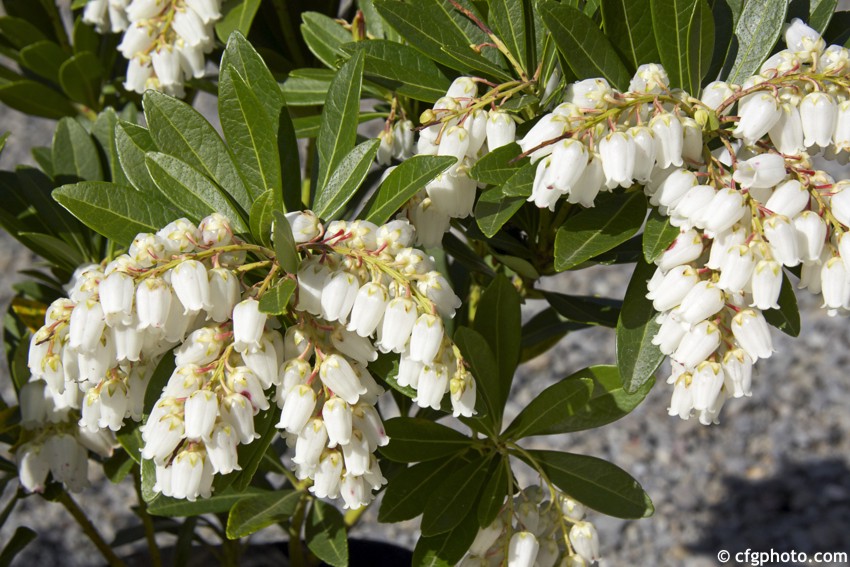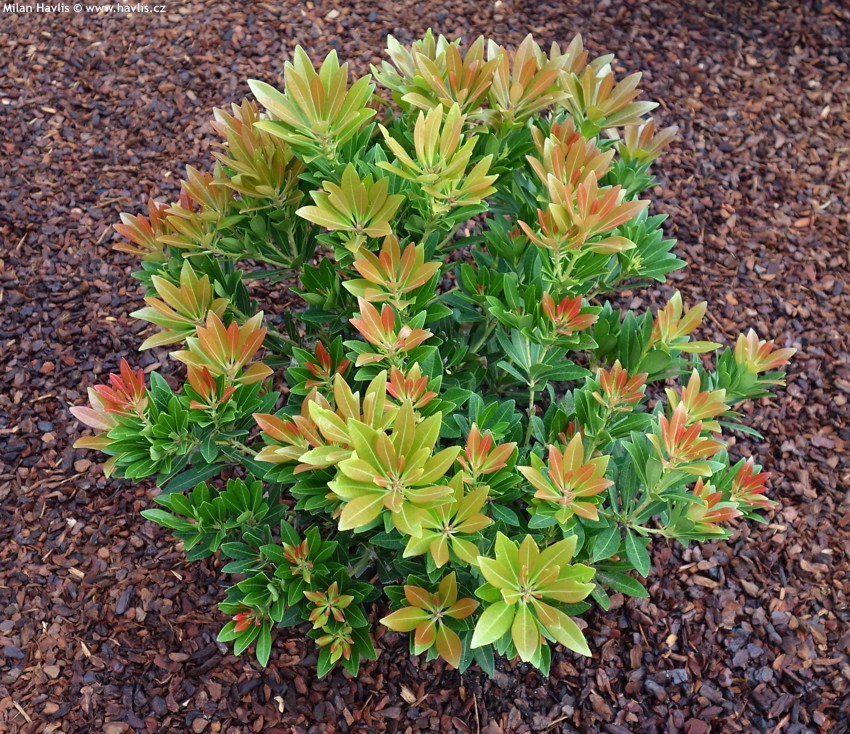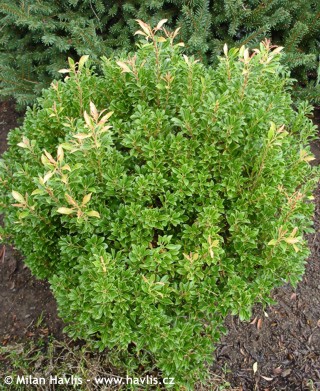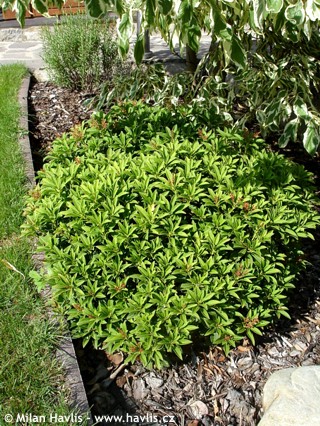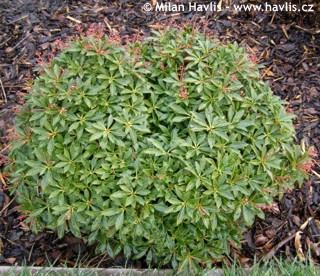Pieris japonica 'TEMPLE BELLS' lily-of-the-valley shrub
size/type
small shrub,small shrub
usual height
0,3-1m
usual width
0,3-1m
leaves
evergreen broadleaf
colour of leaves
flowers
showy
colour of flowers
blooming time
March-April
location
full to partial sun
soil type
acidic (peaty)
soil moisture requirements
evenly moist (dislikes drought)
USDA zone (lowest)
5b (down to -27°C)
winter protection
for zone 5+6

for zone 7

categorized
Pieris
Lily-of-the-valley shrubs are very popular ericaceous plants with attractive foliage and abundant flowering. There are so many varieties already that you think it impossible that breeders could come up with a new one, distinctly different from the others. And see – there is one that looks like nothing else introduced so far.Description of the plant:
Temple Bells pieris will drag your attention mainly to its foliage rather than flowers. The compact habit of the plant as well as lovely foliage may recall dwarf Japanese mock orange (pittosporum tobira) which is not hardy enough for zones 5 or 6, but this pieris obviously is. The evergreen leaves are short, ovate to widely elliptic, rounded at the tip, deep red as they emerge maturing to dark green. Temple Bells pieris will make a superb mounded shrub with tiered branches as it ages, but give it plenty of time as it is rather slow growing. In early spring it bears short clusters of white, urn-shaped, lily-of-the-valley-like flowers that are best deadheaded after flowering to prevent production of seeds that exhaust the plant and make it look untidy. Ericaceous plants require soil that is light, on the acid side, and constantly moist (not wet). If your garden soil is too heavy do not dig a deep hole but make a shallow and wide bed topped up with a good mixture of peat, fine bark chips, and leaf (forest) litter. Keep the soil moist by mulching. Slow-release fertilizers are advised. Expected hardiness is about -27°C (USDA zone 5b).
Last update 11-02-2012
QUICK PRICE OVERVIEW
CURRENTLY SOLD OUT
WANT TO TRY A SIMILAR PLANT?












